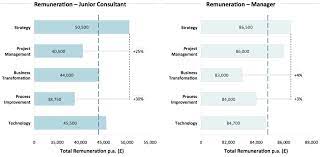Navigating the Executive Salary Conundrum: Balancing Fairness and Accountability
The Debate Over Executive Salaries
Executive salaries have long been a topic of debate and controversy. As the compensation packages of top executives continue to rise, questions are being raised about fairness, transparency, and accountability.
On one side of the argument, proponents of high executive salaries argue that these individuals are responsible for making critical decisions that impact the success and growth of the company. They believe that in order to attract top talent and incentivize performance, competitive salaries are necessary.
However, critics argue that the widening gap between executive pay and the average worker’s salary is unsustainable and unjust. They question whether executives truly deserve such exorbitant compensation, especially in cases where companies are underperforming or laying off employees.
Transparency is another key issue in the debate over executive salaries. Shareholders and stakeholders are increasingly calling for more disclosure regarding how executive pay is determined and justified. The lack of transparency can lead to mistrust and resentment among employees and investors.
Regulatory bodies in various countries have attempted to address these concerns by introducing laws and guidelines to ensure greater accountability in executive pay practices. However, enforcement and compliance remain ongoing challenges.
In conclusion, the debate over executive salaries is complex and multifaceted. While competitive compensation may be necessary to attract top talent, it is crucial for companies to balance this with fairness, transparency, and accountability. Only through open dialogue and responsible governance can companies navigate this contentious issue successfully.
Five Essential Tips for Structuring Competitive and Transparent Executive Salaries
- Ensure executive salaries are competitive to attract top talent.
- Consider tying a portion of executive salary to company performance for alignment with business goals.
- Regularly review and benchmark executive salaries against industry standards.
- Be transparent about executive compensation to build trust and morale within the organisation.
- Seek professional advice from HR experts or consultants when determining executive salary structures.
Ensure executive salaries are competitive to attract top talent.
To attract top talent, it is essential to ensure that executive salaries remain competitive. Offering competitive compensation packages not only incentivizes high-performing individuals to join the company but also helps in retaining them in the long term. Executives play a crucial role in driving the success and growth of a business, and providing competitive salaries is a strategic investment that can yield significant returns by attracting skilled professionals who can lead the company to new heights.
Consider tying a portion of executive salary to company performance for alignment with business goals.
One effective tip for addressing the issue of executive salary is to consider tying a portion of the executives’ compensation to company performance. By linking a percentage of their salary to the overall success and growth of the business, executives are incentivized to work towards achieving key business goals and objectives. This alignment between executive pay and company performance can help ensure that executives are motivated to make decisions that benefit the long-term sustainability and profitability of the organisation.
Regularly review and benchmark executive salaries against industry standards.
It is essential for companies to regularly review and benchmark executive salaries against industry standards. By comparing compensation packages with those of similar roles in the industry, organisations can ensure that their executives are fairly remunerated and remain competitive in attracting and retaining top talent. This practice not only helps in setting appropriate salary levels but also demonstrates a commitment to transparency and accountability in executive pay practices. Regular reviews and benchmarks enable companies to make informed decisions that align with market trends and best practices, contributing to a more sustainable and equitable approach to executive compensation.
Be transparent about executive compensation to build trust and morale within the organisation.
Transparency in disclosing executive compensation is crucial for fostering trust and boosting morale within an organisation. When employees have a clear understanding of how executive salaries are determined and justified, it helps to create a sense of fairness and equity. Open communication about executive pay can demonstrate a commitment to accountability and ethical practices, which in turn can enhance employee satisfaction and engagement. By being transparent about executive compensation, companies can cultivate a culture of trust, improve morale, and strengthen relationships between leadership and staff.
Seek professional advice from HR experts or consultants when determining executive salary structures.
When considering executive salary structures, it is advisable to seek professional advice from HR experts or consultants. These professionals have the expertise and experience to help companies establish fair and competitive compensation packages for their top executives. By consulting with HR specialists, businesses can ensure that their executive salary structures align with industry standards, reflect the executives’ responsibilities and contributions, and are in line with the company’s overall financial health. Seeking expert advice can help companies make informed decisions that benefit both the executives and the organisation as a whole.




